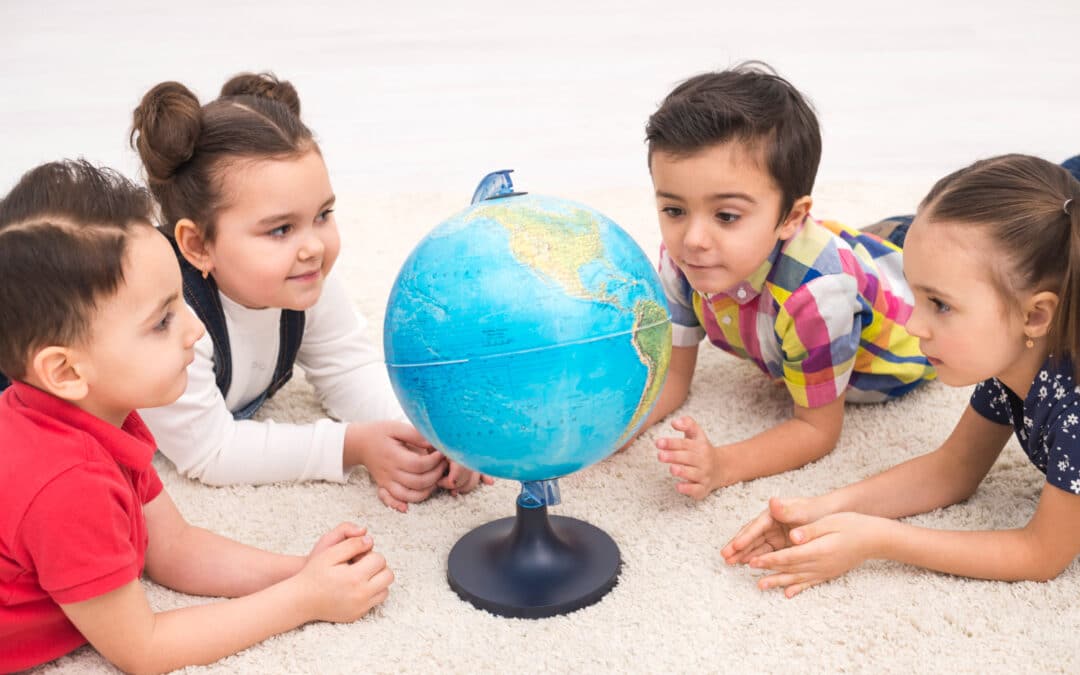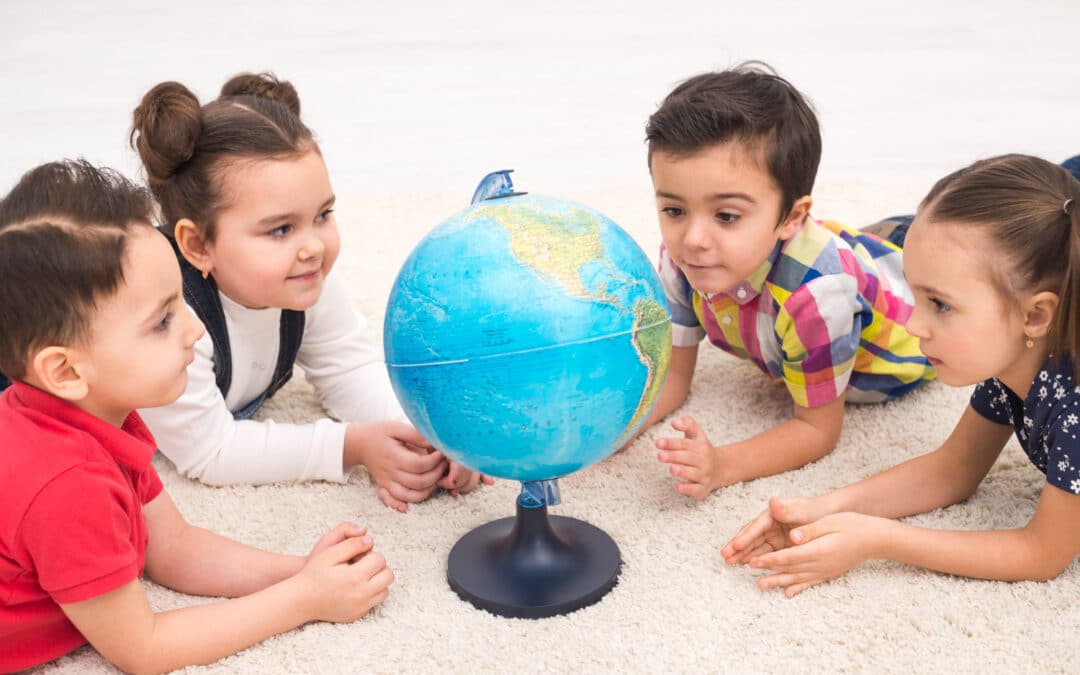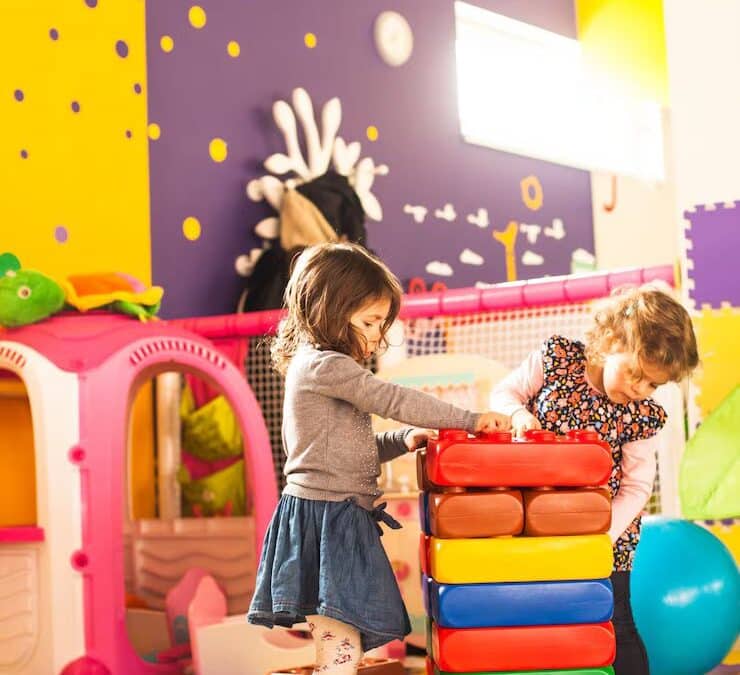Choosing between daycare and preschool is a significant decision for any parent. As a parent, you want what’s best for your child’s development, learning, and overall well-being. The choice between daycare and preschool often comes down to your child’s needs, your family’s schedule, and your educational goals. At Amici Trilingual Montessori, we understand the importance of early childhood education and provide a comprehensive environment that supports your child’s development at every stage.
In this guide, we’ll explore the differences between Ahwatukee daycare and preschool, the advantages of each, and how to choose the best option for your child.
Understanding Ahwatukee Daycare
What is Daycare?
Daycare typically refers to child care services for children ages 6 weeks to 5 years. This option is often more flexible in terms of hours and is designed to meet the needs of working parents. Daycare provides a safe, nurturing environment where children are cared for while parents are at work. In addition to basic care, daycares may offer early childhood education programs, but they tend to focus more on supervision, basic routines, and playtime rather than structured learning.
Benefits of Daycare for Your Child
- Flexible Hours: Ahwatukee daycares often offer extended hours to accommodate busy family schedules.
- Socialization: Your child will have the opportunity to interact with children of different ages, which can help develop social skills.
- Individual Attention: In smaller daycare settings, your child can receive more personalized care and attention.
- Focus on Routine: Daycares help children develop healthy routines, including naps, meal times, and outdoor play.
If you’re looking for a place where your child can receive basic care while you focus on your daily responsibilities, daycare might be the right choice. However, if you desire more structured early learning, Amici Trilingual Montessori provides a blend of both care and education, tailored to meet the developmental needs of your child.
Explore more about Amici Trilingual Montessori to see how we combine daycare with an educational approach.
What is Preschool?
Defining Preschool
Preschool is an early childhood education program that is typically structured for children ages 3 to 5 years old. Unlike daycare, preschool focuses more on early learning, including foundational skills in language, math, social studies, and more. Preschool programs are typically more educationally focused, with set curriculums that aim to prepare children for kindergarten.
Benefits of Preschool for Your Child
- Structured Learning: Preschools provide a structured environment with clear schedules and curricula that focus on cognitive, emotional, and physical development.
- Early Literacy and Numeracy: Preschools emphasize early literacy, numeracy, and other foundational skills that help children succeed in school.
- Social Skills Development: Interaction with peers in preschool helps children develop social skills like sharing, cooperating, and communication.
- School Readiness: By preparing your child academically and socially, preschool ensures that they are well-prepared for the transition into kindergarten.
At Amici Trilingual Montessori, we follow the Montessori method, which emphasizes independence, critical thinking, and respect for others, all within a classroom setting that prepares children for lifelong learning. Our preschool program provides a rich learning environment where children are exposed to multiple languages, cultural awareness, and hands-on learning experiences that foster growth at every stage.
Key Differences Between Daycare and Preschool
1. Curriculum Focus
While daycare provides basic care and routines, preschool emphasizes academic and social learning. In preschools like Amici Trilingual Montessori, children are encouraged to explore concepts related to literacy, math, science, and the arts through engaging, hands-on activities.
2. Age Range
Daycares generally serve children from infancy to age 5, while preschools are typically focused on children ages 3 to 5. This makes preschool an ideal option for preparing children for kindergarten.
3. Schedule Flexibility
Daycares usually offer more flexible hours, which can be beneficial for working parents. Preschool schedules tend to be more fixed, often running during school hours with specific start and end times.
4. Educational Approach
Daycare may offer some educational components, but preschool programs like Amici Trilingual Montessori’s language immersion and Montessori-based curriculum are specifically designed to help children reach academic milestones.
If you’re searching for an educational program with a rich curriculum and a focus on language immersion, consider our language immersion programs in Ahwatukee, which introduce your child to multiple languages and foster cognitive and social development.
Which Option is Right for Your Child?
Consider Your Child’s Developmental Needs
The decision between daycare and preschool should depend largely on your child’s developmental needs. If your child is still in the early stages of infancy or toddlerhood, daycare may be more appropriate. However, if your child is ready for structured learning, a preschool program like the one offered at Amici Trilingual Montessori would be an excellent choice.
Our infant daycare program provides care that nurtures early learning, while our preschool programs focus on engaging your child in educational play, language development, and social-emotional learning.
Consider Your Family’s Schedule
If flexibility is a priority due to your work schedule, daycare may be a better fit. However, for those looking for a more consistent learning schedule, preschool may provide the structure you’re seeking. Many parents choose a hybrid model that includes both daycare and preschool options. At Amici Trilingual Montessori, we offer a flexible yet structured environment that can adapt to your family’s needs.
What Are Your Educational Goals?
If you’re aiming to give your child a head start in their academic journey, preschool should be a priority. Our Montessori method fosters independence, critical thinking, and an inherent love for learning. Through activities designed to stimulate the mind and body, children in our programs engage with the world around them in a meaningful and educational way. Our summer camp also offers continued learning in a fun and interactive way during the summer months.
Why Choose Amici Trilingual Montessori?
At Amici Trilingual Montessori, we blend daycare and preschool into a seamless learning experience for your child. Here’s why our program stands out:
- Montessori Method: We use the renowned Montessori approach, which encourages independent learning and respects each child’s individual pace.
- Language Immersion: Children in our programs are introduced to multiple languages, preparing them for a globalized world.
- Hands-On Learning: Our classrooms are designed to engage children through hands-on activities, fostering creativity and critical thinking.
- Expert Educators: Our highly trained teachers are committed to creating an environment that supports each child’s unique developmental needs.
For more information about how we can support your child’s growth, visit Amici Trilingual Montessori.
Conclusion: Daycare or Preschool?
In the end, the choice between daycare and preschool depends on your child’s age, developmental stage, and educational needs. While daycare provides care and supervision, preschool offers structured learning experiences that prepare your child for the future. If you want an environment that combines both, Amici Trilingual Montessori offers the perfect balance of care, education, and social development.
Our Montessori programs for toddlers, language immersion, and academic curriculum help prepare children for kindergarten and beyond.
Contact us today to learn more about how we can support your child’s early development!











